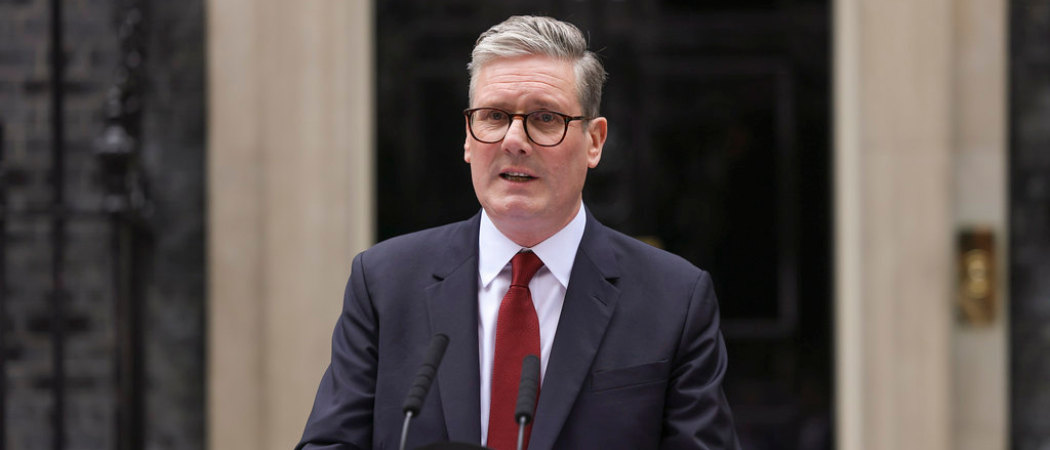London wants “evolution not revolution” in the EU’s next research and innovation programme, set to start in 2028

UK Prime Minister Keir Starmer. Photo credits: Kirsty O'Connor / No 10 Downing Street / Flickr
The UK is “interested in potentially associating” to FP10, the EU’s next research and innovation programme, according to a new position paper released by London.
With a new, relatively pro-European Labour government in power, the paper appears enthusiastic about remaining in the EU’s framework programmes, which should reassure scientists that the country is unlikely to drop out again, as it did from 2021 to 2024 as a result of Brexit.
“The UK’s collaboration through EU framework programmes is rooted in longstanding ties of friendship, shared expertise, and common values,” the paper says. “The UK will, of course, be interested in potentially associating to FP10 assuming it is open, relevant and provides good value for our research community and the UK taxpayer.”
Science organisations in the UK have welcomed this as a reassuring signal from the government that the UK is keen to join FP10.
“It’s very enthusiastic about framework programmes, and the power of science and collaboration,” said Martin Smith, head of the policy lab at the UK research charity Wellcome Trust. “It’s very buoyant about that, which is nice to see.”
Douglas Dowell, policy manager at the Russell group of large UK research universities, said he is “pleased to see UK government engagement with the shape of its successor, FP10”.
While it’s not a surprise that Labour, which has sought to reset relations with the EU after years of Brexit acrimony, would want to join FP10, the position paper makes this more concrete.
In working out its position on FP10, London has a tricky balancing act to strike. It could have remained coy about whether it would join, in order to give it a good negotiating position to win better financial terms from the European Commission.
But this uncertainty could have spooked UK researchers and their EU counterparts into disengaging. UK researchers have been trying to recover their position in the programme after the long absence, which only ended this year when Brussels and London finally resolved differences over Northern Ireland, which had blocked a Horizon Europe deal.
The UK is signalling that “we’re excited about [FP10]…and we want to be seen to be excited about it,” said Smith.
Evolution not revolution
With the UK still trying to repair the damage of being out of the programme, it calls on Brussels not the rock the boat with FP10.
“The UK supports evolution under FP10 rather than revolution,” the paper says. “The continuity of the well-established three-pillar architecture in the next framework programme will aid understanding and engagement.”
In Brussels, however, there’s a behind the scenes tussle over proposals that would see the entire framework programme revamped in 2028, with parts of it potentially reorganised under a new competitiveness fund, which could sit alongside the European Research Council and European Innovation Council. Under a new structure, it’s unclear how association of third countries like the UK would work.
Budget caution
The UK also appears to give a note of caution about increasing FP10’s budget by too much.
Research lobbies and the recent competitiveness report by former Italian prime minister Mario Draghi have called for a doubling of the budget, to around €200 billion.
The UK response says that “in a world of constrained resources third countries will then, of course, need to consider the affordability of association to the next framework programme and the terms of the framework for participation”.
There’s also a strong focus on working with the EU on security R&D.
FP10 needs to “enable the equal participation of likeminded associated countries in all areas of the programme from its very inception,” the paper says, given that EU countries and the UK “already work closely together on shared security and technological challenges in support of our mutual defence”
Security collaboration
This is likely a nod to the risk that the EU will exclude non-member states from sensitive calls, as the Commission already has done in some quantum and space technologies.
The UK is stressing that “security is in all of our interests together,” said Smith.
Unsurprisingly for a strong science power, the UK backs distributing money according to research excellence, rather than a more redistributive approach to benefit lagging countries.
“FP10 should seek to preserve stable and predictable support for proven excellence-based elements within Horizon Europe,” says the paper.
London also cautions against expanding the equity finance investment activities of the European Innovation Council – again, this is unsurprising, as UK companies cannot access this equity fund.
The UK would also like to see diversity requirements broadened out. Horizon Europe mandated gender equality plans for recipient universities, but the UK wants to see that “ensuring equality, diversity and inclusion beyond gender is considered” in FP10.





 A unique international forum for public research organisations and companies to connect their external engagement with strategic interests around their R&D system.
A unique international forum for public research organisations and companies to connect their external engagement with strategic interests around their R&D system.